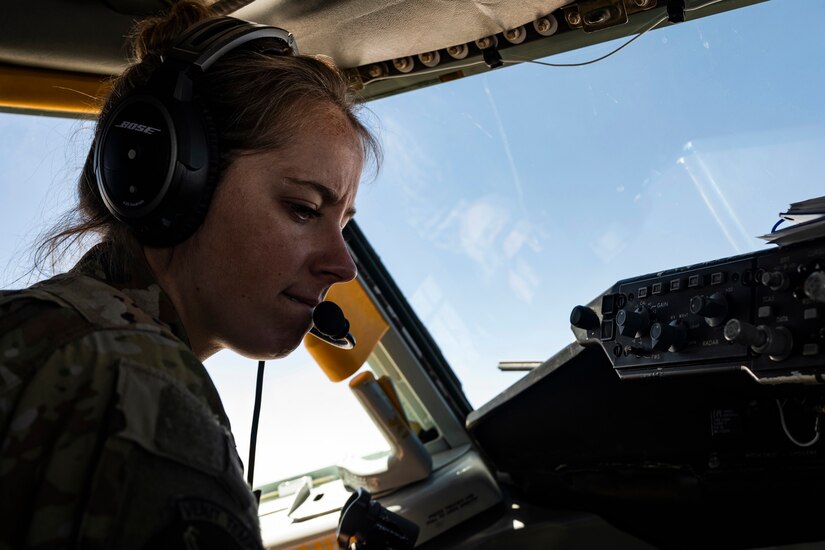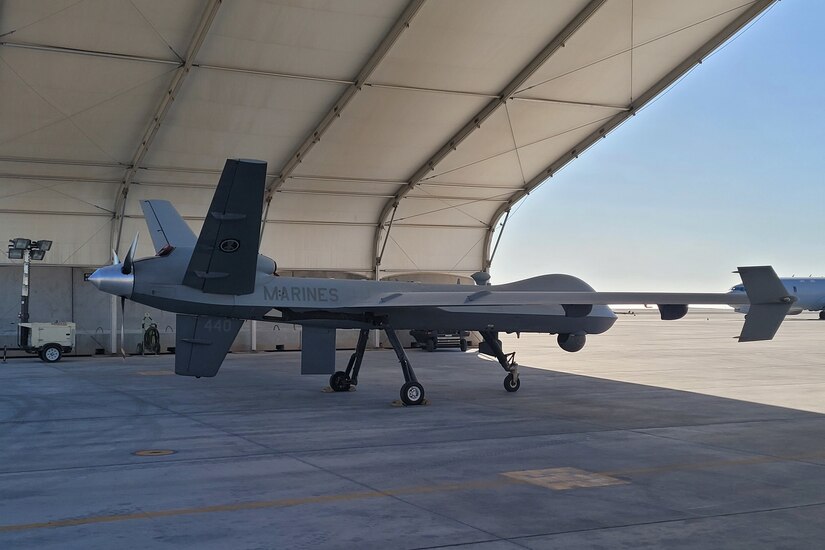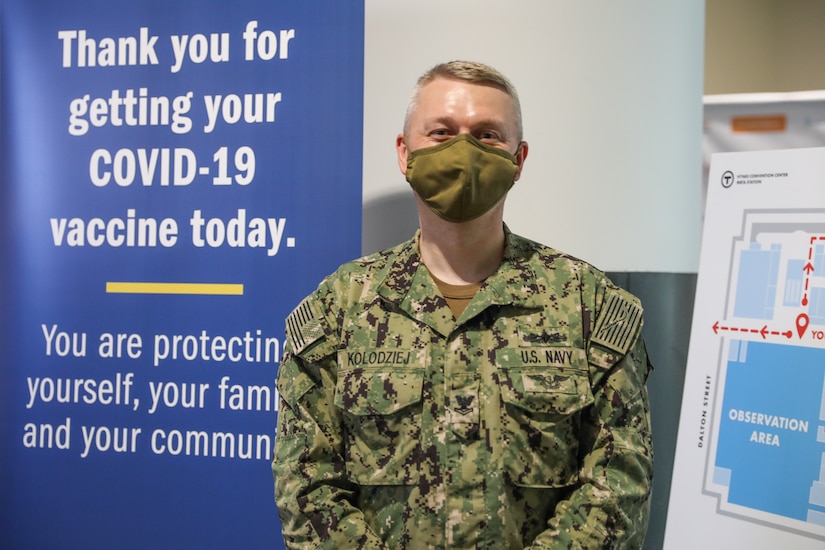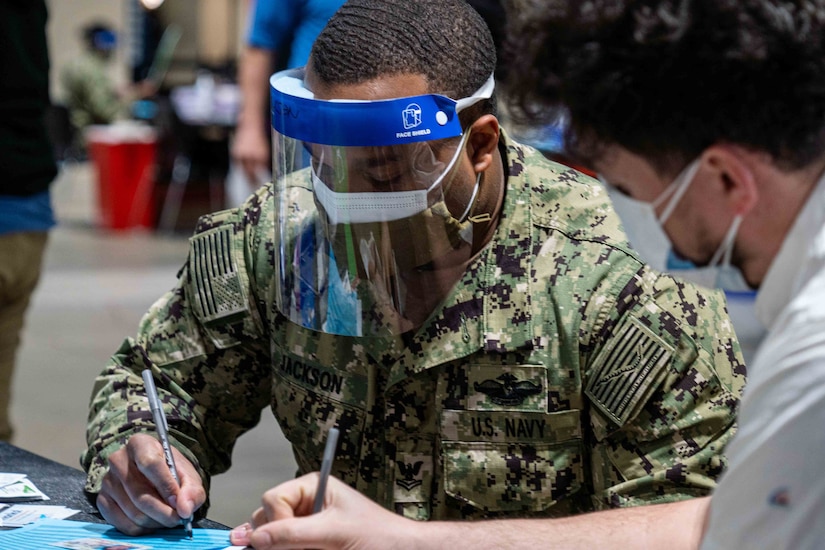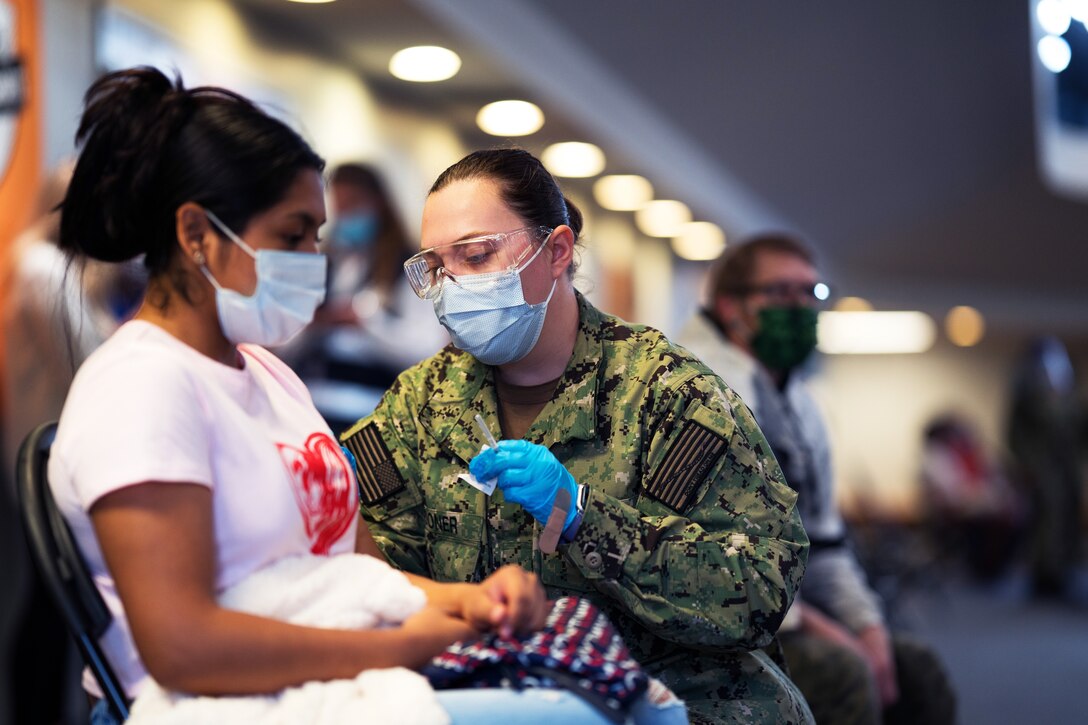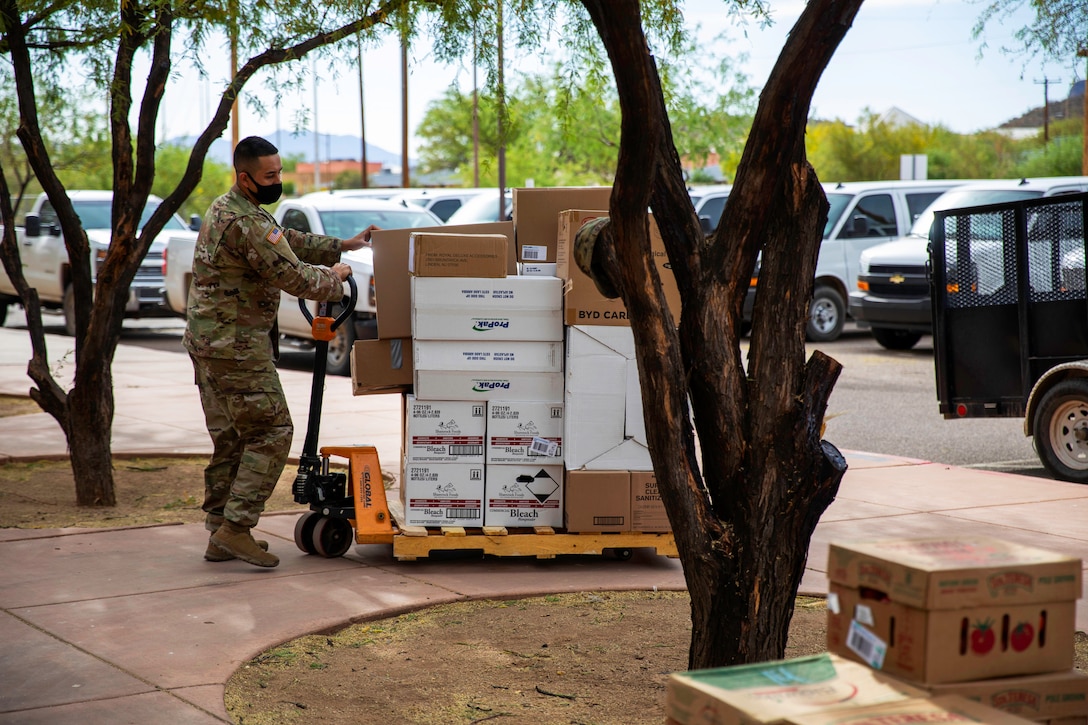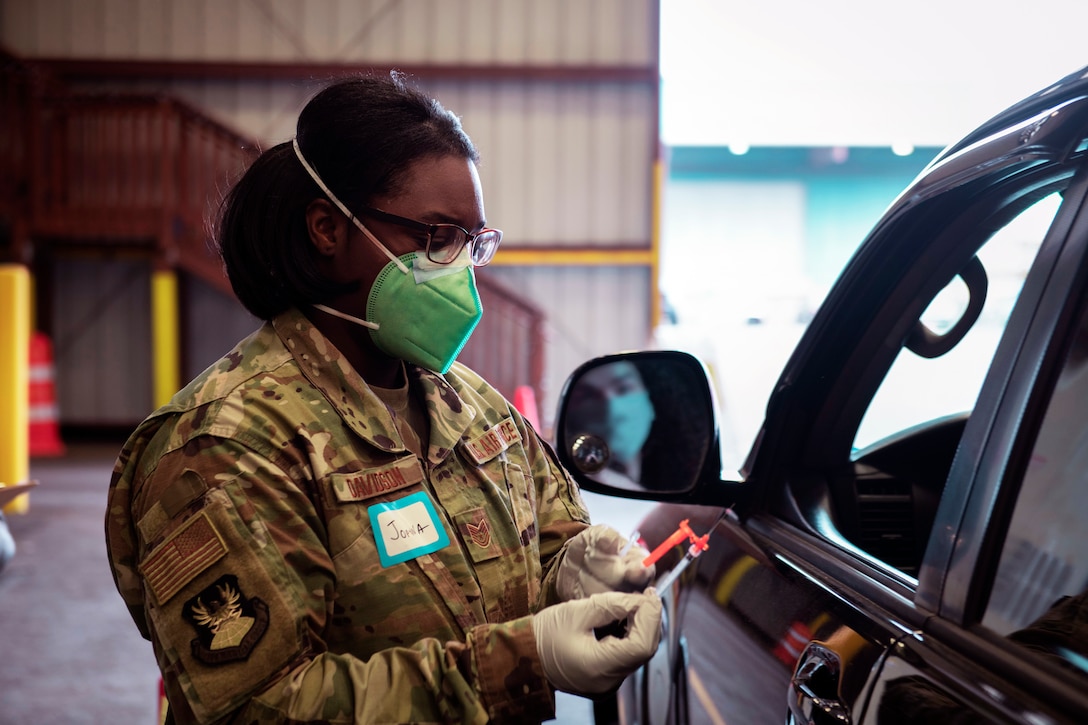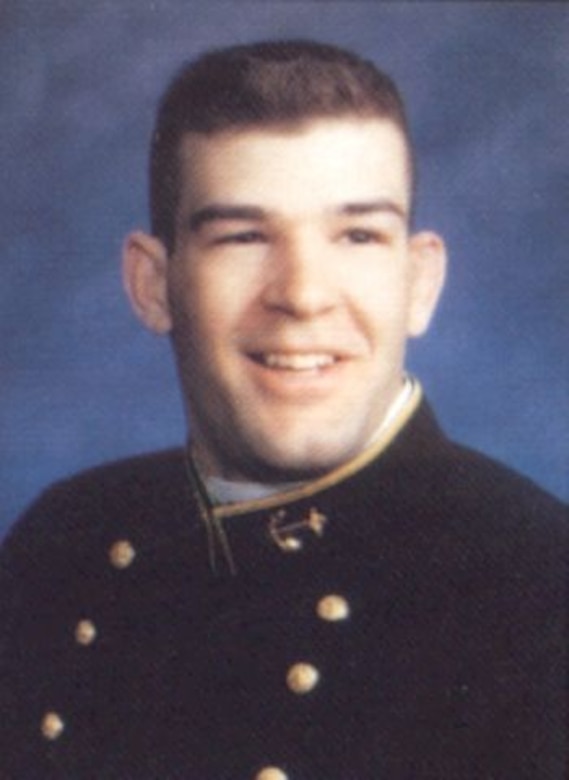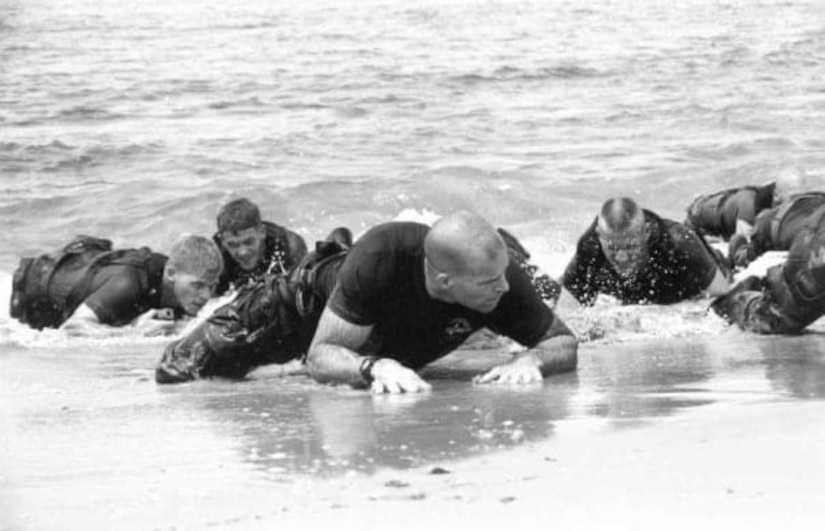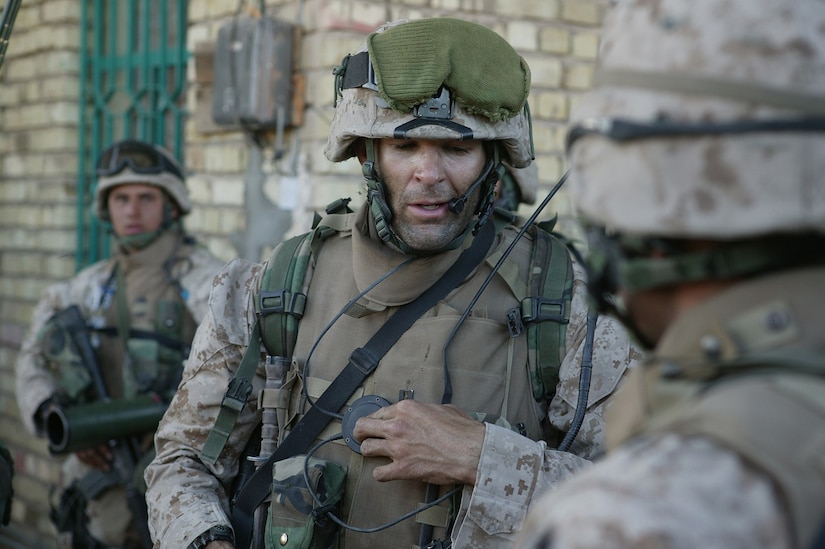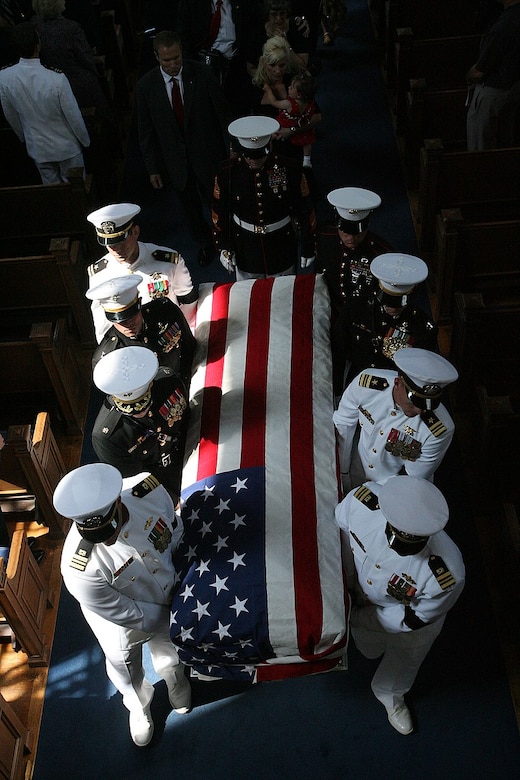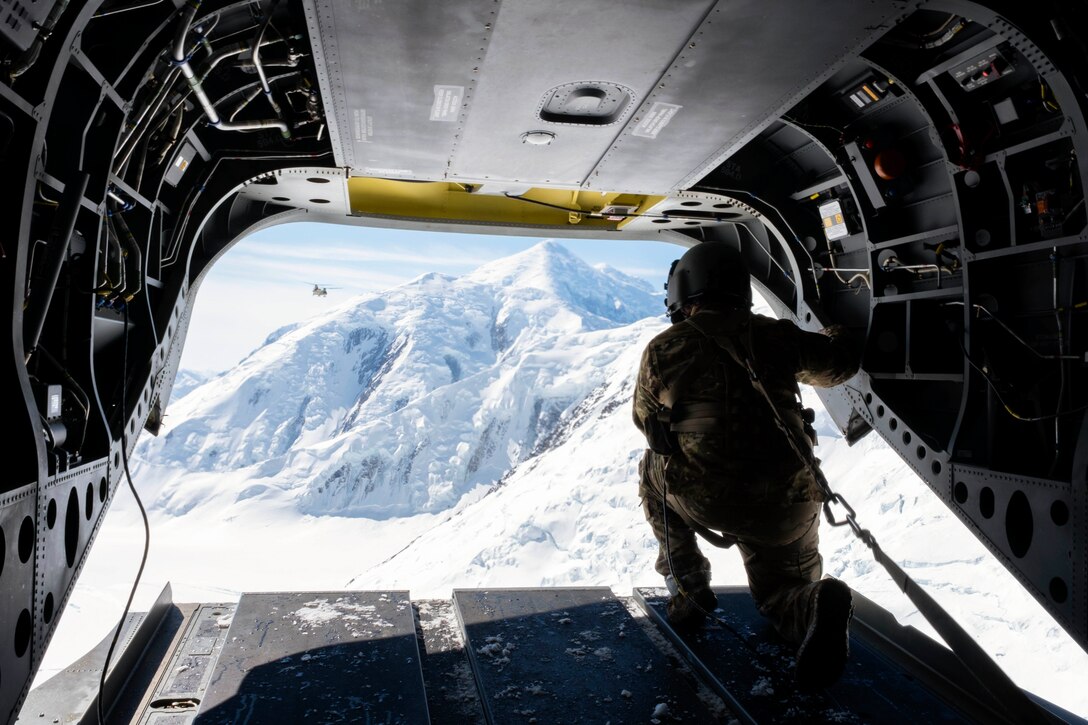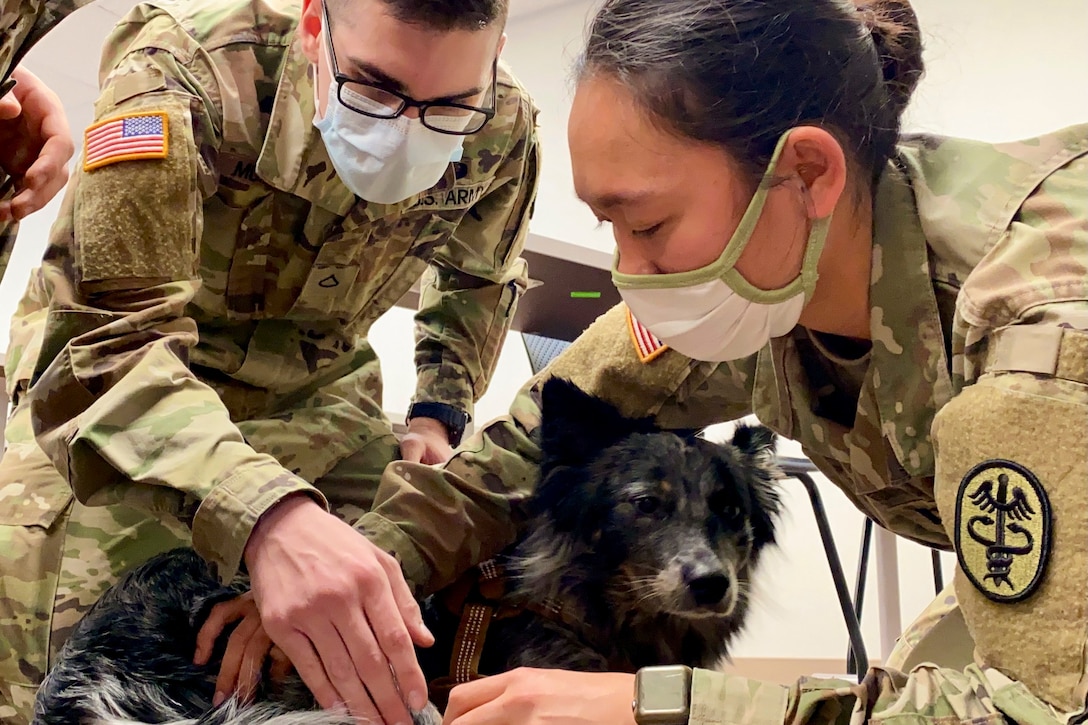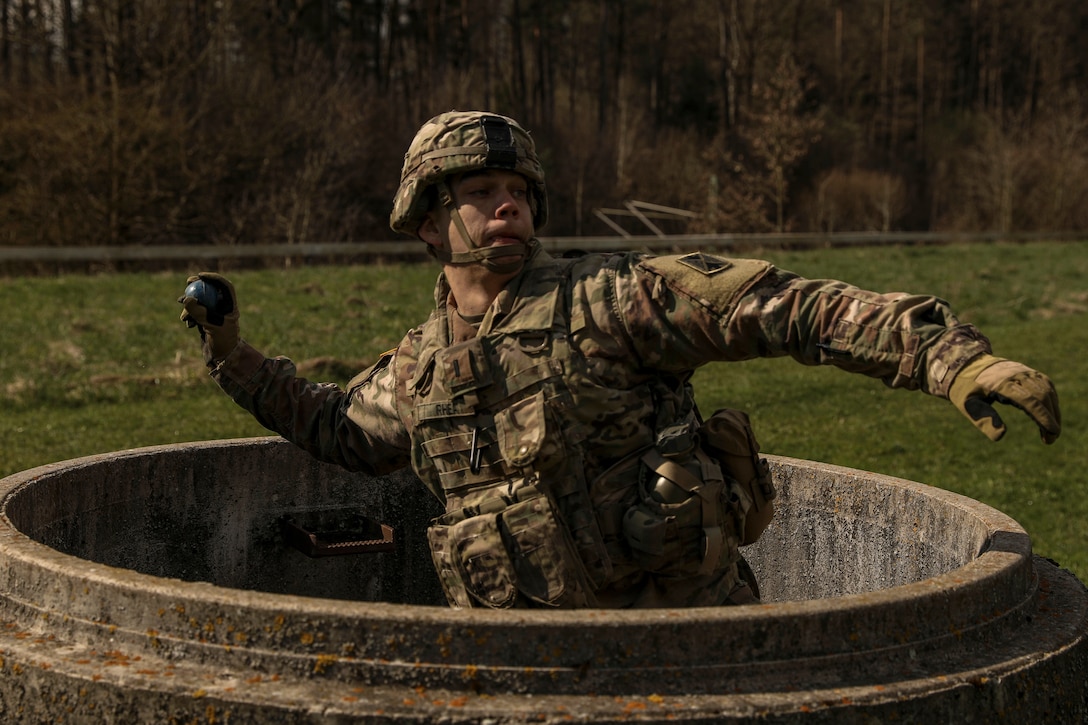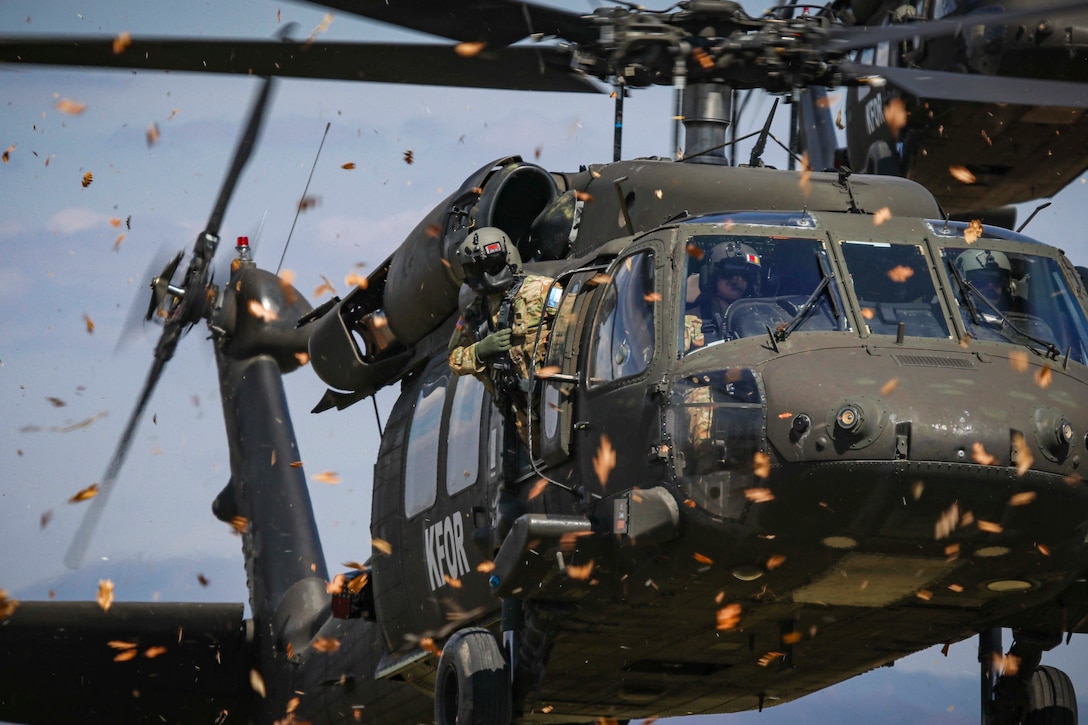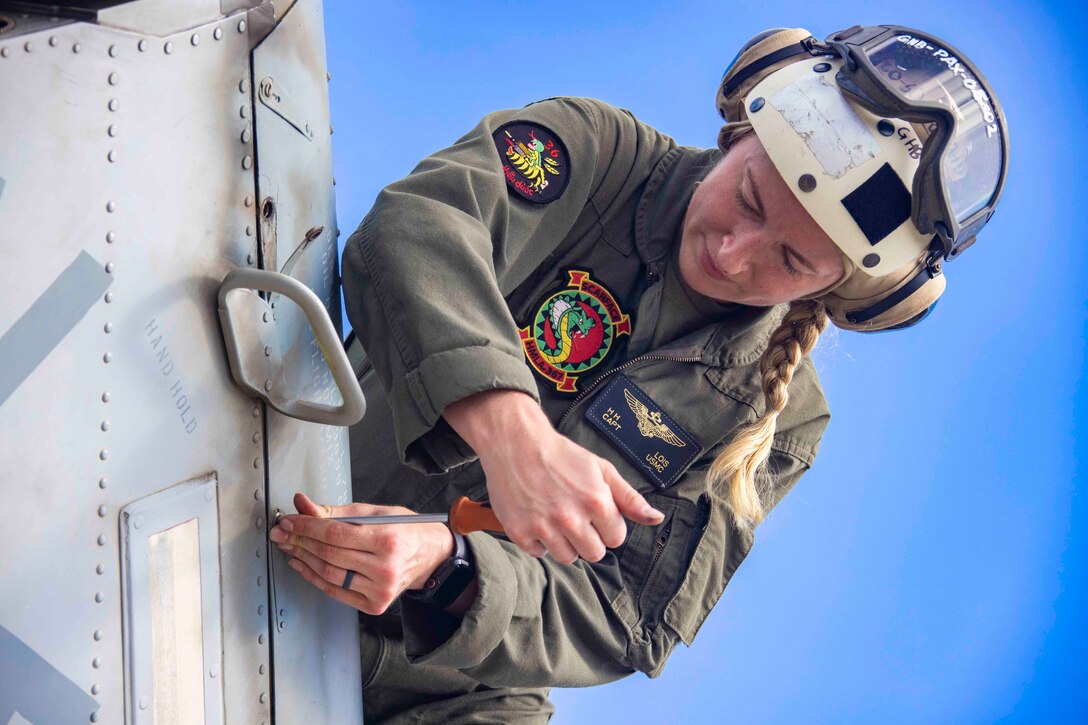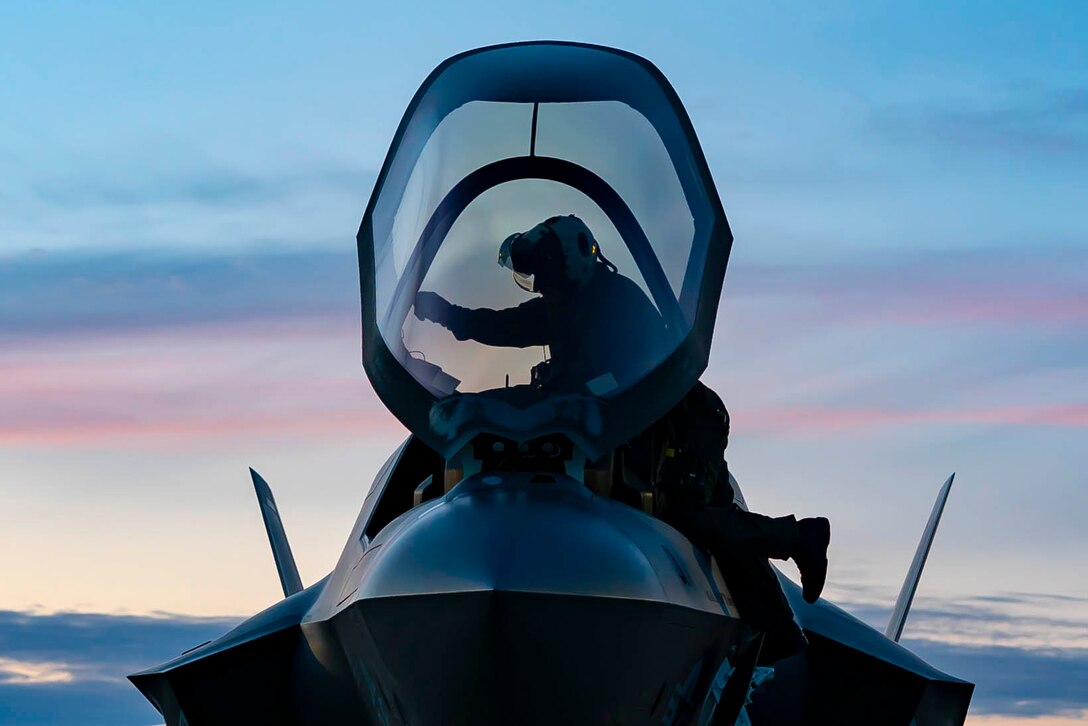Pentagon Press Secretary John F. Kirby
PRESS SECRETARY JOHN F. KIRBY: OK, I actually don't
have anything to top off with today, so we can get right at it. Who
wants to go first?
STAFF: Bob Burns.
MR. KIRBY: No, I don't.
Q: I'm here, John.
MR. KIRBY: (inaudible) Bob.
Q: Bob is highlighted.
(CROSSTALK)
MR. KIRBY: No, the questions that are highlighted are the ones that say yes...
Q: Oh.
MR. KIRBY: ... and I see Bob here, but there's no highlight for Bob. And there's (inaudible)...
(CROSSTALK)
MR. KIRBY: Go ahead, Bob.
Q: OK, thank you. I'm just wondering if you have anything on this
late-breaking development in Saudi Arabia, where the Saudi military says
there's been some sort of attack in the port of Yanbu by some kind of
remotely piloted boat with explosives. Do you have any details?
MR. KIRBY: No, I'm sorry, Bob. I mean, even as I was getting out
here, I had not been made aware of that incident. So I'll tell you what,
I mean, rather than waste time, I'll just -- we'll take that question
and see what we can do to get back to you on that. I just -- I don't
have anything on that.
Q: OK, thanks.
MR. KIRBY: Yeah. Joe?
Q: John, to follow up on Bob's question...
MR. KIRBY: Which I couldn't answer...
(LAUGHTER)
... so I'm not sure how you can follow up is going to help you, brother.
Q: ... could be something related to what -- what he said. I was
wondering if you could -- if you could tell us. Since the decision that
President Biden took in February to stop supporting the Saudi led
coalition in the Yemen war, have you seen an increase of -- from the
Houthis' attacks towards Saudi Arabia?
MR. KIRBY: I can't quantify it, Joe. What I can tell you is we
certainly haven't seen attacks on Saudi Arabia and on their soil and on
their facilities and their people stop.
Q: But you can't say if the -- the number of attacks have increased yes, or not?
MR. KIRBY: I cannot say that. I haven't done that trend data. I mean,
I don't -- I couldn't tell you definitively today whether the numbers
are increasing over time or decreasing. What I can tell you is that they
are still under threat, they're still being attacked.
Q: Is it possible -- last question. Is it possible if the Pentagon
could get back to us with an answer if the attacks have increased?
MR. KIRBY: I can look into it, Joe, but I can't promise you that. I
mean, that gets into intelligence assessments, and you know, I just
don't know who keeps that data and whether it's appropriate for us to
release it. But I'll ask the question. I mean, the -- I understand where
you're going, but the -- let's not forget the key point, and that is
that they continue to still be under attack.
Q: (inaudible) part of CENTCOM, that's why I'm trying to -- to get an answer.
MR. KIRBY: I understand, it's in the CENTCOM AOR. I'm just saying I
don't know that it's -- I don't know that that's -- that that is data we
own, or that we even have, and that we can release. But I will ask the
question.
Q: Thank you, sir. Something very interesting happened yesterday. Our
colleagues at The Wall Street Journal put a story as an exclusive and
new about the IRGC boats crisscrossing and then doing unprofessional
behavior with the Coast Guard and the Arabian Sea.
MR. KIRBY: Yeah.
Q: And then when we looked at it, it happened that the story is not
new, it was the second of April. But what is very interesting is that
the 5th Fleet took the picture (inaudible) very small caption and no one
paid attention.
Then my question is, if you don't mind, by not saying that this
incident happened, even it was a dangerous one, is like, is it a
pattern? Is it the policy, is it the plan from the side of the U.S. not
to escalate with Iran and trying to keep things like low-profile?
MR. KIRBY: I can't speak to what decisions were made at the time
about public disclosure of that particular incident, so I don't know
that I would read more into that than -- than you need to.
Broadly speaking, we obviously want to see tensions de-escalate, we
don't want to see miscalculations. And -- and unsafe and unprofessional
activity by the IRGC navy is not new. It has been a persistent problem
for a long time. We don't see the same sorts of behavior coming out of
the Iranian state navy; this is largely the IRGC and usually their small
fast boats.
It remains troublesome, it remains concerning. And it certainly, as
we've said before, increases the -- the chances for miscalculation,
which I don't think serves anybody well in that particular part of the
world.
Q: I want to follow up on all of it. So first, as the head of public
affairs for the department, have you given any instruction or guidance
to commands to not make public dangerous and unprofessional
interactions? Have you told anybody to be quiet about it?
And the reason of course I ask: I think historically, the department,
the U.S. military has released and talked about unprofessional, unsafe,
and specifically said it wants to. So have you given any direction not
to do that?
MR. KIRBY: I have not.
Barbara?
Q: Is -- is there a policy on releasing public information about dangerous and unprofessional interactions.
MR. KIRBY: I'm not aware of a blanket policy with respect to that,
Barb, as you know, covering these incidents for a long, long time. Each
case is unique and specific, and -- and you have to look at the
circumstances surrounding it to -- to determine what the public affairs
-- or the public posture's going to be. There's no blanket policy that
I'm aware of that dictates to military commanders that they must always
speak to what they see as unsafe and unprofessional behavior.
Q: Well, (inaudible) question is right now -- is the Biden
administration so focused on de-escalation with Iran that the military
feels pressure or something short of pressure -- I don't know what the
right word is -- to not talk about these things? Are...
MR. KIRBY: There's no -- there's no pressure by anyone in the
administration to meter up or meter down communications, activities
regarding these sorts of incidents.
Q: Any assessment about why you think after so many months, Iran did this?
MR. KIRBY: I -- I couldn't begin to -- I couldn't begin to get in the
heads of the IRGC navy and their commanders about what they’re
thinking. As I said to Pierre, we obviously don't want to see
miscalculation, and these kinds of events could spiral into
miscalculation, and that's not good for anybody in the region.
I think we need to also remember that, you know, that -- there's --
there's not perfect, monolithic command out of Tehran. I mean, we're
talking about the IRGC navy, which, you know, I -- which reports to the
IRGC, which reports directly to the supreme leader, and that's a
separate line of chain of command than it is for their Iranian state
military. And I think it's a -- it's a distinction, but it's an
important one. You know, we're not seeing the same activity out of the
Iranian state navy.
So can't get inside their heads and what exactly they think they're
trying to accomplish, but again, I would remind that these sorts --
these sorts of behaviors could lead to miscalculation, which could lead
us onto a dangerous path that nobody wants to see.
And number two, that our forces have the -- the right and the
responsibility of self-defense. Our -- our commanders there and
elsewhere around the world always have the right to defend themselves
against threats that they believe, you know, put them and their people
and their assets at risk.
Meghann?
Q: Are there any deadlines for the Global Posture Review, or is there
an order in which the different COCOMs are supposed to report back for
their findings?
MR. KIRBY: No, it's not -- it's not -- so the structure isn't, hey,
go to the COCOMs, and you tell us -- that -- that's not the way it's
being put together. There's a committee here at OSD under USD for Policy
that is running and administering the Global Posture Review. It's very
much a work in progress. Obviously, there's a lot of consultation with
the combatant commanders, as well as the services, and that's a
give-and-take conversation. They're part and parcel of the effort. But
it's not like a tasking to them to report back by a certain timeline.
The...
Q: So as far as, like, working with, like, we're doing CENTCOM now,
and we're going to push -- push our recommendations at this point ...
MR. KIRBY: I don't believe it's -- I don't believe it's being done
sequentially by combatant command. And that work is continuing, and
again, as we've said, we expect them to wrap up and be able to report
back to the secretary by midsummer. Yeah.
Let me go back to the phones.
Missy?
Q: Hi, John. Sorry. I just had to unmute. Thanks for doing this.
I have a couple of follow-up questions regarding Afghanistan. First
of all, just following up on you -- what you were saying yesterday about
the nature of the -- or, what's going to happen after the withdrawal
and air support… and all of that. I -- I have a question about the air
support prior to the withdrawal, and -- and I believe, if I understood
what General Miller was saying over the weekend, that the U.S. would
continue to support the ANDSF until the U.S. withdraws. But can you just
talk -- any -- is there anything you can say about the capacity that
the U.S. will have to provide, like, the same level of support that it
has provided, given the fact that, you know, it's going to be shrinking,
the -- the presence, and then, you know, focused, obviously, on the
logistics surrounding -- and the security surrounding the withdrawal?
That's one question. And anything -- do you have any information about
the Taliban's spring offensive and any indications of how, you know,
significant that is appearing to be at this stage? Thanks.
MR. KIRBY: Yeah, on the first one, I can't really improve upon
General Miller's comments. As -- as you know, come May 1st, the mission
in Afghanistan changes. It's not -- it's no longer about advise-assist
for Afghan National Security Forces, and it's -- it -- it -- it -- it's
no longer the Resolute Support mission under the NATO hat. {SEE ED. NOTE
1} It becomes the -- the mission to draw down, to leave Afghanistan,
and the -- the assets at General Miller's disposal will be designed to
help him execute this drawdown in a safe and orderly way. I -- I think
-- I think he captured that very well, and you know, May 1st is just
around the corner, so they're working hard at the final preparations to
-- to execute that new mission on May 1st.
On the second -- the -- the second question, without getting into
intelligence assessments, you know, certainly, we have seen in -- in
these last 20 years that in the -- in the spring and summer months, the
Taliban increased their activities. And as I've said, regardless of the
-- regardless of the season in which we are, we have to assume, and we
are assuming that this drawdown could be opposed and resisted by the
Taliban. It would be irresponsible for us not to assume that this
drawdown and -- and forces drawing down, both American and from our NATO
allies, could be attacked by the Taliban. And that is why you are
seeing additional force protection assets being flown -- flowed into the
region. We already talked about the carrier. We talked about the
bombers yesterday. And as I said yesterday, there's certainly, without
getting into details, the likelihood that, you know, some additional
ground force elements, too, could be introduced into Afghanistan to help
us with a safe and orderly drawdown.
So again, without getting into specific intelligence about what we
think the Taliban will or won't do because of the, quote/unquote,
"spring offensive", we are assuming that -- we have to assume that this
drawdown will be opposed, and therefore, we have to make sure that we
put in place and have in place and have available to General Miller
options to make sure he can keep our troops and those of our allies safe
as they -- as they come out.
Q: Sorry, can I just clarify, John, just -- just -- I think I missed
this in what Miller said over the weekend. So you're saying as of May
1st, the only mission is the -- is the retrograde and that the advise
and support mission ends and the advise and support and air support
activities ends?
MR. KIRBY: He's already been given a new mission, Missy ...
Q: Yes.
MR. KIRBY: ... and he talked about that over the weekend. And -- and
the President was very clear that starting May 1st, we will be drawing
down out of Afghanistan. That's the mission.
Q: I -- I didn't know that that was exclusive, you know, that -- but I
have -- you know, my impression would -- had been that that would
continue concurrently with some sort of support mission to the -- and --
and operational support mission and an advisory support mission to the
ANDSF until the time that U.S. forces withdraw. You're saying that as of
May 1, that advisory and operational support component no longer
happens? Is that right?
MR. KIRBY: The -- the mission on May 1st becomes one of a -- a
drawdown and I'll -- I -- I won't talk to tactical details that General
Miller has to deal with but his mission shifts on May 1st.
Q: OK. I don't think that was clear from what he said over the weekend but ...
MR. KIRBY: I'm not going to get into hypotheticals, Barbara, or
specific tactical potentialities here. His mission on May 1st becomes
one of -- of drawdown. That's the main -- that's the main focus, that is
... that is the focus, that is the mission.
(CROSS-TALK)
Q: Everything else is on the table?
MR. KIRBY: ... I'm -- I'm not going to -- I'm not going to get into
operational hypotheticals here and you know that. His mission on May 1st
becomes one of drawdown.
Q: That is the sole mission?
MR. KIRBY: I -- I think I've answered this question.
Lara Seligman?
Q: Hey, John, thanks for doing this. I wanted to ask you actually
about the sexual assault panel recommendation. Has -- I think you said
previously that Secretary Austin was going to seek input from the
military services chiefs. Has he received that input yet? What was their
advice and what is the timing on a -- an action?
MR. KIRBY: I mean, I -- I think we've already talked about this,
Lara. He has received an initial set of recommendations from the IRC. As
-- let me back up -- the -- the IRC's working on four lines of effort.
One of them is accountability. He has received an initial set of
recommendations by the IRC inside the line of accountability -- inside
the line of effort regarding accountability. It is only an initial set
of recommendations. They have not precluded the possibility that they --
inside accountability, that they might have additional recommendations
to make, but they did brief him on an initial set.
I'm not -- as I said before, I'm not going to detail those
recommendations -- I've seen press reporting on them -- but I'm not
going to outline them. It's -- it's not for me to do that, it's the --
these are the IRC's recommendations.
The Secretary received a briefing gratefully, he appreciated the work
and the effort that went into fashioning those recommendations. He
wants to take time to review them for himself and he's also asked the
services, the service secretaries, the service chiefs, as well as the
Chairman of the Joint Chiefs to take about a month and take a look at
them, as well, for themselves and he asks them for their very candid
feedback about this initial set of recommendations.
But I want to stress it's a 90 day commission, they're about a -- a
third of the way through their work, there are many more recommendations
to come and there -- and it may even be additional recommendations
inside the -- the accountability line of effort.
Q: If I could just follow up, this -- this effort has the support of
the White House also. So when this actually -- when some decision
actually comes down, will it be a decision by Secretary Austin? Will it
be a decision -- will he give a recommendation to the White House and
that'll come out of the White House or what is that process? And then
also, how closely are you coordinating with the Hill on this?
MR. KIRBY: There were -- there were notifications to members of
Congress, with respect to these initial recommendations, and that's
primarily centered around the -- the specifics of the recommendations
themselves and the high congressional interest that there is in them.
He will obviously keep the President informed as he works through
these recommendations and makes decisions. Some of the recommendations
we anticipate he'll be able to act on his own, in -- inside his own
authority, if he decides to accept them. Some of them, depending on what
they are, may require legislative action and legislative support, which
is again why, you know, we -- we did speak to members of Congress about
this initial set of recommendations and why I suspect that that same
sort of consultation and communication will occur going forward.
Abraham?
Q: As a spokesman and a former naval officer, I wondered if -- if I can touch on…
MR. KIRBY: Where are (inaudible)?
(LAUGHTER)
Q: So it -- you've mentioned a couple of times this unmanned -- this
unmanned exercise that just concluded off the coast of California. I
wondered if you can talk a little bit about that -- a little bit more
about that. Why is that important, how -- what does that bode for the
future of the Navy and how does that relate to the pacing threat of
China?
MR. KIRBY: The exercises and the development of this technology is
not designed around one nation-state or -- or one specific threat.
Unmanned surface and unmanned undersea capabilities are capabilities
that the Navy has been pursuing for quite some time and, you know,
they're now at this stage where they can start to integrate them into
some battle problems at sea, and we think it was a very successful
exercise they -- that they conducted.
I think this gets back to what you've heard the Secretary speak to in
terms of future -- the future force, which is having the right
capabilities, the right mix of capabilities to deal with a wide range of
threats. And we're -- we're pursuing capabilities and technology in --
in unmanned air systems, as well as surface and subsurface systems. It
-- it allows us more flexibility, better adaptability, it -- it will
allow us to not only better protect our people but -- but advance and
spread out the kinds of offensive and defensive capabilities that we can
employ at sea.
So I think you're going to see more and more focus on -- on unmanned
capabilities in the maritime environment and -- and the Secretary
applauds that effort.
Q: So that "more and more" has nothing to do with the fact that the
United States' main adversary is China and this is a huge Pacific
nation?
MR. KIRBY: We -- we -- we haven't called China our main adversary.
The Secretary refers to China as the pacing challenge of -- of this
department, and we take that challenge very seriously. But the pursuit
of unmanned capabilities is not designed around one specific threat or
one specific part of the world. Again, we've been pursuing these kinds
of capabilities for -- for many years and we're going to continue to
advance them and you'll see them employed around the globe.
Q: Terrific. Thank you, John.
MR. KIRBY: Anything else? Yes?
Q: Thank you. I have a quick question about secretary’s trip
(inaudible) later this week. Does the secretary have any plans to meet
with leaders in the region (inaudible) in Hawaii? Thank you.
MR. KIRBY: I don't believe that there are -- there's going to be time
in his schedule to hold a series of bilateral meetings. He's looking
forward to seeing many of our allies and partners that he knows are --
that he knows will be attending, and I suspect he'll have -- he'll take
whatever opportunity he can to -- to visit with them.
But there -- right now, there's -- there's no planned agenda for a
series of more formal sit-down bilateral engagements, it's a very quick
trip out there. And I mean, he's got some other things he's going to be
-- that he wants to do and see, and briefings he wants to take. But
clearly he looks forward to meeting with them and seeing them, but I
don't -- I don't predict any formal bilateral discussions.
Again, to remind, we were just in the region, it was his first
overseas trip, just a month or so ago. So he's had -- he has already
afforded himself the opportunity to sit down with these leaders and talk
to them at length about their perspectives on the region.
Q: Thank you.
MR. KIRBY: Joe?
Q: Yeah, on Guantanamo, is there any plan for the administration to
close the detention in Guantanamo? And is it something that is part of
the global posture review that's undergoing by DOD?
MR. KIRBY: There's a policy review process ongoing right now, led by
the National Security Council, about Guantanamo and the future of the
detention facility there. The president has been very clear, Secretary
Austin has been very clear. We want to see the detention facility
closed, that's the goal. How you get there, there's a review process
ongoing right now.
And I wouldn't -- I wouldn't think that it's going to be a major
component of the global posture review, which is really about looking at
where we have assets and resources with respect to executing on the
National Defense Strategy.
So I'm not saying that they won't look at the Caribbean and what
we're doing in Latin America, that certainly will be part of the posture
review. But the detention facility is being considered inside a
specific policy review process, again, led by the NSC, to work our way
towards eventual closure.
Q: But there is no timeline? There is no timeline, there is no...
MR. KIRBY: I'm not aware of a specific deadline that's been set.
There's a policy review ongoing, but there's nothing about -- nothing's
changed about our commitment to closing the facility.
Tara, are you still on?
Q: I am, thank you -- oh, I am, thank you, sorry, I had to unmute.
So a couple of things. First, I was wondering if you could confirm
reporting that Frank Kendall is being nominated to be the Air Force
secretary?
MR. KIRBY: No, I cannot confirm that.
Q: Is there an intention to have the secretaries named before the budget is rolled out?
MR. KIRBY: I'm sorry, I lost you there. Is there -- is there -- did
you ask if there's a press to get these names out before the budget
hearings?
Q: No, before the -- the budget rollout.
MR. KIRBY: Is there...
Q: Before the...
MR. KIRBY: I mean, there's a -- there's a...
Q: Sorry.
MR. KIRBY: ... yeah, no, so I think I know what you're asking and
I'll try to answer it. And if I didn't get to you -- I mean, as we've
said before, these are key national security jobs and obviously the
secretary would like to see them filled with qualified individuals.
There have been already many named to jobs and many nominated by the
president. We're grateful for the progress there. There are a lot more
that we still want to get into the building, and some Senate-confirmed
but not all. Because the national security issues we're dealing with are
-- are important and they're vital to -- they're vital to our ability
to defend the nation.
That said, we've also made clear that we want to -- we want to get
this right, it's about getting it right more than it is about getting it
fast. And that means getting the right people with the right skills and
talent and experience into these jobs, and that's where the secretary's
focused. It's not about trying to beat the -- the clock on -- on budget
rollout, it really is about finding the right talent for the right
jobs.
Did that answer your question? I think I got to what you were saying.
Q: Yeah, you mostly did. Just asking, you know, how important is it
to have secretaries names or in place before budget rollout. And then I
have a second one on Afghanistan.
MR. KIRBY: Getting mostly there is a good standard for me. What's your second question?
Q: So -- so just hopefully not to add to the confusion, but just to
lob onto what Barbara and Missy were asking. So as of May 1st, no
uniformed personnel and no defense contractors will be forming any sort
of train, advise and assist role with Afghan security forces?
MR. KIRBY: I'm not going to speak specific -- on specific tactical or
operational issues that are under General Miller's purview. What I can
tell you is that -- that we have been -- we have a new mission. That
mission begins on May 1st, to draw down out of Afghanistan. That is the
primary focus for General Miller and his command. I'm not going to talk
about hypothetical possibilities about what that looks like, going
forward.
His -- his main function, come May 1st, will be to draw down all U.S.
military personnel and contractors that are serving in Afghanistan
right now, and do so in a safe and orderly way.
After that, our relationship with Afghan National Security Forces
transitions to one of support from outside the country, and we talked
about that largely being through financial means -- again, back on the
contractor piece, we know they still need some contract support,
particularly for aviation maintenance, and we're working our way through
that.
So I don't have a perfect answer on what the contract picture's going
to look like, but the mission shifts on May 1st to one of drawdown.
Q: You know, since it has been a go-in-together, lead-together
operation, is it also -- would it hold that all of NATO countries also
in there, in the coalition, would also cease training and advisory and
would move completely to a drawdown mission after May 1st?
MR. KIRBY: I won't speak for our NATO allies, they're sovereign
nation-states that should speak to -- for themselves and for what
they're -- what they're going to do. We are in communication with --
with them now about -- about their drawdown logistics and their drawdown
requirements, and exploring ways in which we might be able to help them
as they draw down.
The secretary-general made it clear, back in Brussels a couple of
weeks ago, that -- that NATO, too, will take on a mission of drawdown,
and that's what they're going to be doing.
Yeah, Barb?
Q: ... sorry to do this to you, but I think you began answering this
series of questions by saying resolute support ends. And now your words
are "mainly" focused on drawdown...
(CROSSTALK)
MR. KIRBY: Barb, because -- because you guys are trying to drag me
down into hypotheticals that I can't simply speak to right now.
Q: (inaudible)...
MR. KIRBY: I know what you want me to say. I...
Q: No, I don't want you to say anything but the truth.
MR. KIRBY: I am trying to give you the truth, Barb. The mission
changes on May 1st. I'm not going to get into hypotheticals about if
such-and-such is attacked, or so-and-so is attacked, and what
capabilities we might have to -- to thwart those kinds of attacks
because I don't know what those attacks are going to look like, and
where they're going to come, and who they're going to come at.
Q: (inaudible) this Saturday. The U.S. military always, but always has rules of engagement.
MR. KIRBY: Of course.
Q: Do you have rules of engagement for starting on Saturday?
MR. KIRBY: But we always have rules of engagement, and we never talk about specific rules of engagement.
Q: You started by saying Resolute Support ends. I think I remember
what you said. If I'm getting it wrong, someone here please try to
(inaudible)...
MR. KIRBY: I did say that. The mission ends.
Q: (inaudible)...
MR. KIRBY: May 1st, there's a new mission, and that is drawdown.
Q: (inaudible) …
MR. KIRBY: Our support -- let me put it in another way then. Our support to Resolute Support ends on May 1st.
Q: So for the United States, Resolute Support ends on Saturday.
MR. KIRBY: For -- our support to Resolute Support ends the beginning of the drawdown, which begins on May 1st.
Q: So Resolute Support for the United States is over May 1st.
MR. KIRBY: Yes.
Q: So not mainly, but is over.
MR. KIRBY: Yeah, but -- yes.
Q: I've just got to be clear in my mind. I'm sorry. I just want to
(inaudible). So does General Miller stay past Saturday? Is he still the
commander? Will he be the last United States servicemember out of
Afghanistan? Is there a name for the new mission? What can you tell us?
MR. KIRBY: I don't believe there's a name for the new mission. The
president's made it clear we're drawing down beginning May 1st. General
Miller will stay through the retrograde to make sure that it is done in a
safe, orderly and effective way. Is he the last person out of
Afghanistan? I don't know that, but he will stay throughout the drawdown
to lead it.
Q: OK, so all the -- just, I won't belabor it, but it's not
hypothetical then. Anything that fell under Resolute Support mission no
longer happens starting...
MR. KIRBY: The -- the mission changes on May 1st. I don't know how I
can be more clear on this. The mission changes on May 1st to one of
drawdown, and -- and the -- the effort over the next ensuing four months
will be to do that. I am -- I'm simply not going to -- I -- I mean, I
can understand what you're trying to ask is if, you know, if Afghan
forces somewhere are -- are coming under attack, if we will -- if we
won't defend them. I'm not going to get into specific rules of
engagement about those kinds of hypothetical situations when they
haven't even happened yet.
But what I will -- what I can tell you -- and I go back to what I
said before: The main effort is drawdown, and that is where the force
protection assets are going to be -- what -- what they're going to be
used for. That is what the logistical and the engineering support that
he's getting is used for: to draw down. That is the main focus. I will
not speak to hypothetical, potential operational things that might --
might happen as we draw down, and as that drawdown, if it -- if it is --
if it's opposed.
Q: OK, thank you.
Q: Aside from that, I think part of the question is not, like, what
if something happens, and what -- how will you respond? But is -- the --
the question is, we've been doing these train, advise and assist
missions. You've got Special Operations doing ISIS. They're doing ISIS-K
missions. Is that all over? Are we -- or are we phasing that out, as
well, that there will also be some units with ANA, and they will be
doing some help, some support to ANA through the summer, or Rangers will
be doing some missions when necessary throughout the summer? Or is it
just that all cuts off, and it's only as, like, an as-necessary force
protection basis after that?
MR. KIRBY: The focus after May 1st is drawdown.
Q: (inaudible)...
MR. KIRBY: I don't have -- I don't have -- I -- I don't have at my
disposal what -- exactly how the -- the phases of the drawdown are going
to occur and -- and what's happening inside each phase. So I think
that's a better question asked to Kabul and to General Miller's staff.
What I can tell you is his mission changes on May 1st, and it's one of drawdown. That is the main effort. That is the focus.
Q: Yeah. But not the only -- that's the difference. (inaudible)...
MR. KIRBY: I -- I don't know.
Q: ... It doesn't mean it's the only thing they're going to be doing ...
MR. KIRBY: I can't speak to -- again, I -- I can't speak to how he's
-- the specifics of how he's going -- it's a phased drawdown, a phased
withdrawal, and I'd let him speak to the phases and what's a -- what's a
part and parcel of each of those phases.
Q: We would love to speak to him about the phases. He won't talk to us...
(CROSSTALK)
MR. KIRBY: I'll do what I can.
Q: Is he no longer the commander of Resolute Support starting Saturday?
MR. KIRBY: Again, I think that the -- let me ...
Q: (inaudible) U.S. Forces Afghanistan...
MR. KIRBY: He's U.S. Forces Afghanistan, but he's also dual-hatted.
(CROSSTALK)
MR. KIRBY: Let me find -- let me find out if there's a specific sundown on that title.
Q: Is there going to be a ceremony with the flag -- you know...
(LAUGHTER)
MR. KIRBY: (inaudible) no. I don't know.
(CROSSTALK)
MR. KIRBY: I don't know.
(CROSSTALK)
MR. KIRBY: I'm sure that they will...
(CROSSTALK)
MR. KIRBY: I'm sure that they will close this mission out appropriately, but I don't know the details for that.
Q: OK. Actually, I'm (inaudible). As – assuming Colin Kahl gets
approved today. I think this was supposed to get voted on today. Is the
secretary looking forward to having him up here, and has he been -- has
he been -- because he's going to have to really hit the -- get the floor
running when he gets here. Has he had -- had any opportunity to get
some briefing books sent to him ahead of time?
MR. KIRBY: Are you talking about Colin Kahl?
Q: Right.
MR. KIRBY: Well, I -- I think we obviously want to wait for a -- a
vote, and -- and -- and the secretary remains hopeful and optimistic
that that -- that he will be confirmed, but I'm not going to get ahead
of that process. As we said before, he's an eminently-qualified
professional with significant national security bona fides, and if
confirmed, the secretary's very excited to get him in the chair and in
-- in the seat. He's not an individual who let his knowledge of the
world around us and national security issues lapse in the time that he
wasn't in government, but I suspect that like any of us who have come
back after being away, you know, there's certainly a period of
reorientation. But again, we don't want to get ahead of the Senate here.
OK?
Q: Just real quick, now that Ely Ratner has been nominated for a
position in DOD, does that mean he's no longer head of the China task
force?
MR. KIRBY: He's still the director of the task force.
Q: OK, and would you have him come and brief us again?
MR. KIRBY: I'll ask him.
Q: Thanks.
MR. KIRBY: All right, thanks. Appreciate it.
(CROSSTALK)
EDITOR’S NOTE 1: NATO's Resolute Support mission is not ending
May 1st. There has also been no decision to change or reduce air
support to the Afghan security forces. As the United States Central
Command commander stated previously, our main effort is one of
transitioning to withdrawal.
